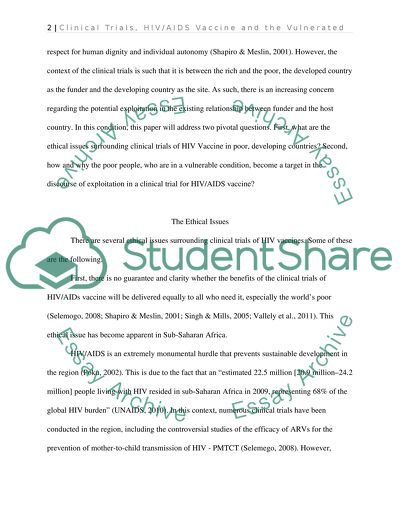Cite this document
(“Clinical Trials, HIV/AIDS Vaccine and the Vulnerated Essay”, n.d.)
Retrieved from https://studentshare.org/health-sciences-medicine/1429738-ethical-issues-on-international-research-in
Retrieved from https://studentshare.org/health-sciences-medicine/1429738-ethical-issues-on-international-research-in
(Clinical Trials, HIV/AIDS Vaccine and the Vulnerated Essay)
https://studentshare.org/health-sciences-medicine/1429738-ethical-issues-on-international-research-in.
https://studentshare.org/health-sciences-medicine/1429738-ethical-issues-on-international-research-in.
“Clinical Trials, HIV/AIDS Vaccine and the Vulnerated Essay”, n.d. https://studentshare.org/health-sciences-medicine/1429738-ethical-issues-on-international-research-in.


